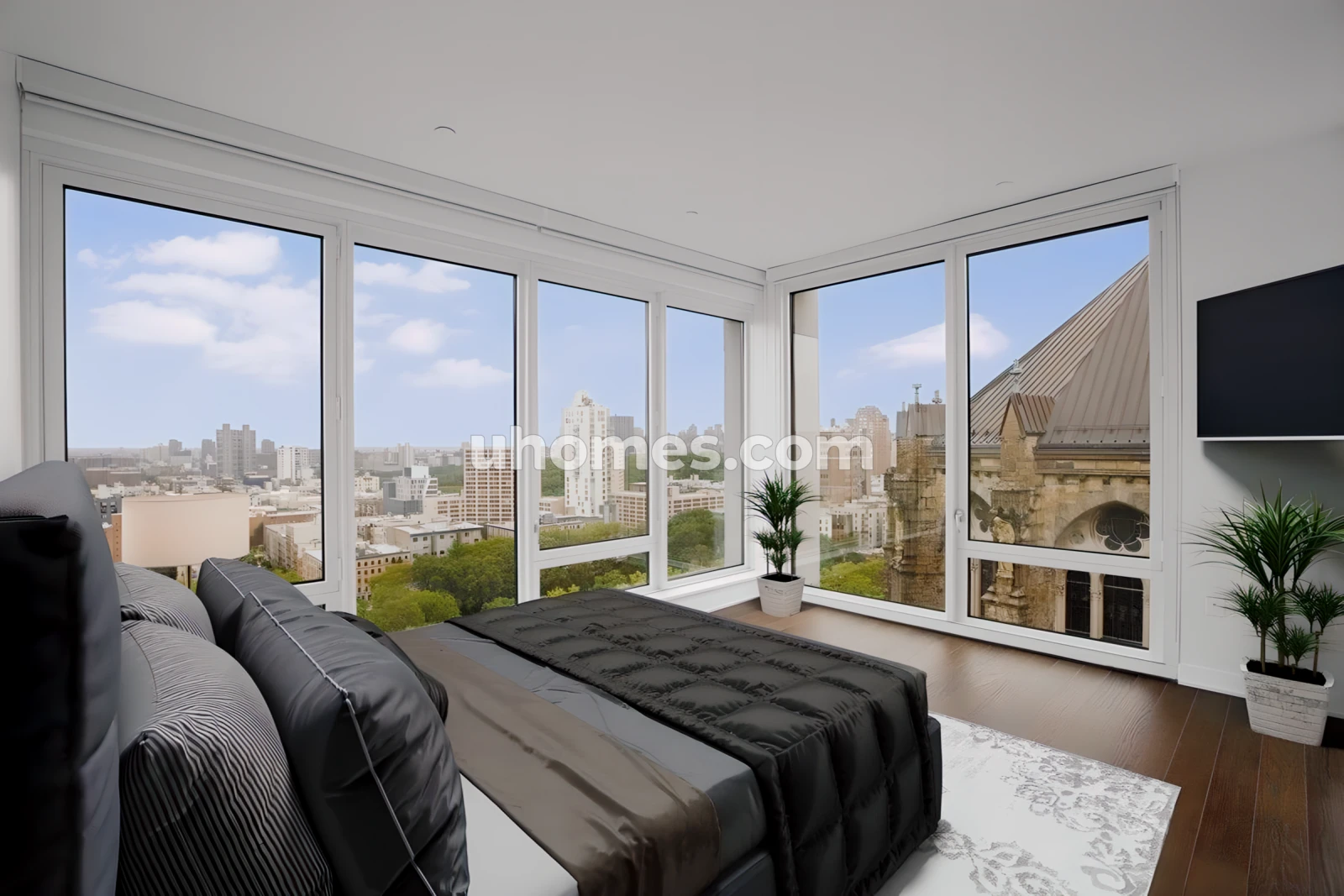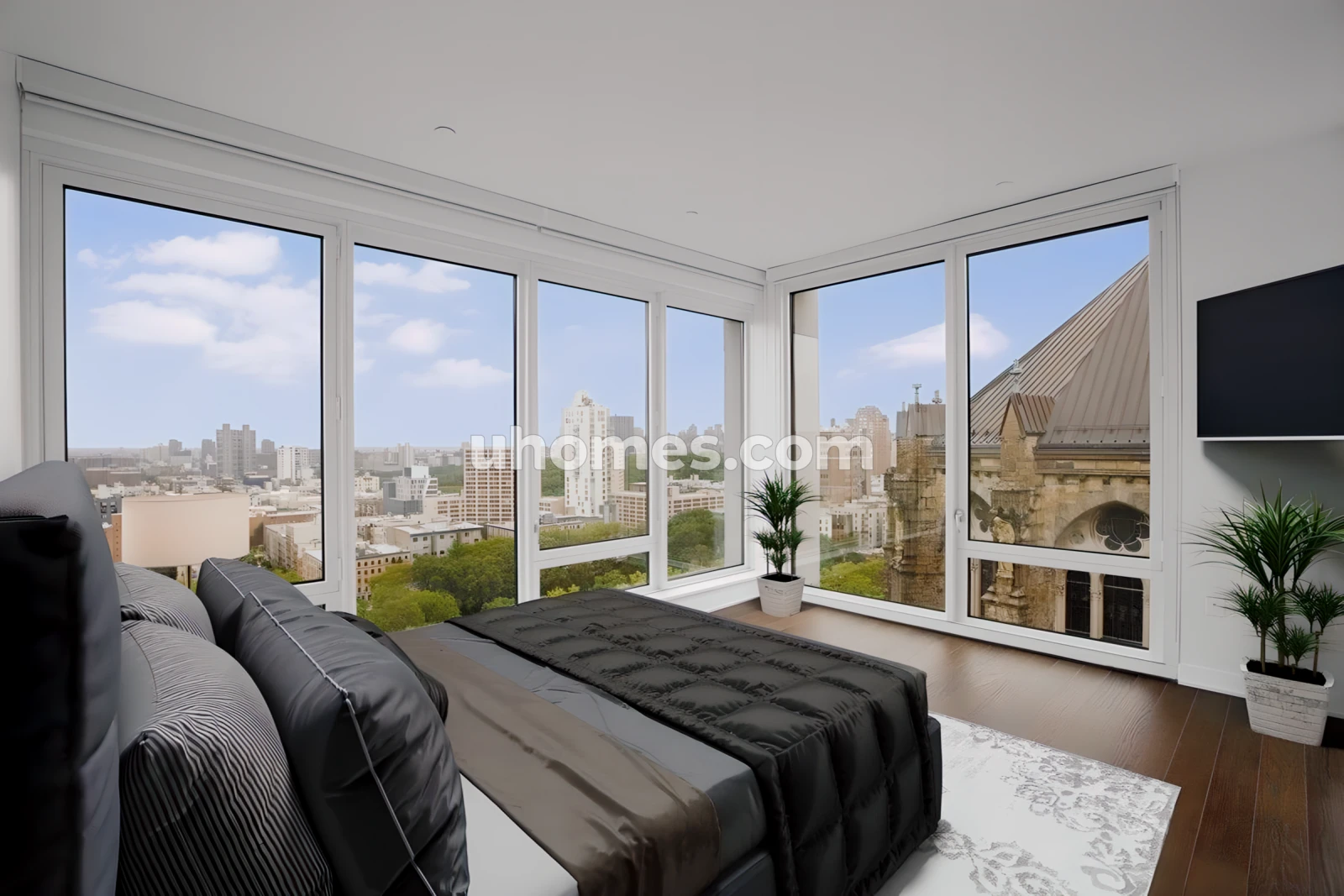When choosing a place to live, many people come across two standard options: condos and apartments. While they may look similar, the key differences between condo and apartment lie in ownership, maintenance responsibilities, costs, and lifestyle. In addition to introducing the differences between condo vs apartment, we will also introduce the differences between condo vs co-op. Understanding these condo vs apartment differences can help you make a more intelligent decision based on your budget, long-term goals, and preferred level of commitment.
What is Condo?

A Condo is a type of ownership property. It means that individuals own their individual units, including all the space within the walls and interior amenities, as well as co-owning the common areas of the building, such as hallways, elevators, gyms, and so on. By entering into a contract of purchase and sale, condominium owners take title to the condominium and a percentage of the building’s common areas. Typically, condominiums have less restrictive subletting restrictions and allow foreigners to purchase. Condo owners share facilities and grounds, such as parking in the same garage, a community pool and a gym. In other words, these are common areas that do not need to be maintained by the owners. The property fees for all residents are collected by the board organization (which is usually made up of selected homeowners), and they use the fees collected to hire cleaning or maintenance staff, etc.
What is Apartment?

An apartment is a multi-unit residential building that is owned by a landlord and rented out by tenants through a lease; it is a rental apartment where the entire property is owned by a company that rents out the units to different tenants. In addition to the monthly rent, the tenant may also have to pay the company for garbage removal, property management and other expenses, which is usually 30 to 50 per month. Generally speaking, the tenant has to pay for his own water, electricity, gas, internet, cable TV, etc. However, there are some apartments for students and young people, which may have all-inclusive utilities, but the rent will be a bit more expensive accordingly.
What is Co-op?

A co-op is generally translated as a cooperative, where the buyer does not own the unit, but rather a share in the co-op company. This share only gives you the right to exclusive use of the living space but does not give you the right to own the space. Co-ops will screen potential buyers more closely and only move in after passing an interview with the board of directors of the neighborhood association.
What’s the Difference Between Condo and Apartment?
Understanding the difference between a Condo and an Apartment is key when exploring housing options. While these two housing types may look similar, there are significant differences in ownership, amenities, and affordability.
Condo vs Apartment: Ownership Versus Use
Condo: Condos (apartment homes) are individually titled, with each unit owned by a separate owner. In other words, when you buy a condo, you not only get the right to use the interior of the unit, but you can also rent or sell the unit. The owners of all condo units form a community, and the owners usually elect a management committee.
Apartment: A condominium is not individually owned but is collectively owned by a corporation or LLC (Limited Liability Company). Each tenant simply rents the unit and does not own the property. The management of the entire apartment building or community is handled by a separate legal entity (e.g., an LLC), unlike a condo, which is self-governed by the owners.
Apartment vs Condo: Management Model
Condo: The management of a condo is generally undertaken by a homeowners’ association (HOA), which oversees and manages the community’s shared amenities, such as fitness equipment and swimming pools, and undertakes maintenance and repairs, as well as establishing a series of community rules, such as maintenance requirements for the exterior of the home and pet ownership rules. It also establishes a set of community rules, such as requirements for maintaining the appearance of the homes and pet ownership. Each condo owner pays an HOA fee based on the number of units they own, which is used to upkeep and maintain the common areas and ensure that the neighborhood is always in good condition.
Apartment: An Apartment is usually managed by the landlord or a third-party property management company. The relationship between tenant and landlord is relatively straightforward, with landlords managing their units and leasing matters. Condos are more centrally managed than apartments, with all management decisions made by a single landlord or management company and tenants simply fulfilling their obligations under the lease agreement.
Condos vs Apartments: Amenities and Services
Condo: Usually equipped with a private elevator, swimming pool, gym, garden, etc., managed and maintained by all owners.
Apartment: facilities are more basic and may only include basic living environments such as bedrooms and kitchens, and do not include additional leisure or fitness facilities.
Apartments vs Condos: Fee Structure
Condo: Owners pay for the property, maintenance, and possibly the use of communal facilities.
Apartment: Tenants usually only pay rent, with other costs such as utilities and internet charges being the tenant’s responsibility.
Condo vs Apartment: Security and Privacy
Condo: Due to the multiple owners involved, there may be a stricter access control system and 24-hour security.
Apartment: While there are some security measures in place, they may not be as strict as a Condo, especially at night or in case of an emergency.
Risk tip: When buying a Condo, pay attention to the clarity of ownership and future maintenance costs. Similarly, rental stability and clarity of lease terms are important considerations when renting an Apartment. It is advisable to conduct detailed market research and site visits before deciding.
What’s the Difference Between Condo and Co-op?
Ownership
- Condo: The buyer owns the actual title to the apartment and can trade it freely.
- co-op: The buyer receives a share of the property rather than the actual title and has the right to live in the building.
Property Taxes
- Condo: Each owner pays his/her property taxes for the unit.
- Co-op: All residents share the property taxes for the entire building, usually lower than a Condo.
Loan Application
- Condo: Relatively simple, easy to obtain a loan and can be used as collateral for refinancing.
- Co-op: This has a more complicated application process, requires more of your funds, and generally cannot be used as collateral for a bank.
Closing Costs
- Condo: Higher closing costs, title insurance required.
- Co-op: Lower closing costs, no title insurance required.
Registration after Closing
- Condo: Public registration is required on the government website after purchase.
- Co-op: Public registration is not required, which protects a certain amount of privacy.
Condominium Board Rights
- Condo: The board has relatively limited rights and is responsible for maintaining common areas and complying with regulations.
- Co-op: The board has more rights and can reject a buyer based on financial reviews and other factors.
Pros and Cons of Condo?
Features: The purchaser has full ownership of the condominium unit and has co-ownership of the common areas. Owners must pay a property management fee to maintain the standard facilities, pay for insurance, and other everyday expenses. Management: A homeowner’s association or property management company is responsible for the management and maintenance of the building.
Pros of Condo
- Investment Value: Condos usually have a high resale and rental value.
- Autonomy: Owners have a high degree of autonomy over their units and can make renovations and remodeling.
- Amenities: Many Condos offer a wealth of standard amenities such as swimming pools, gyms, and clubhouses.
Cons of Condo
- Higher Costs: Property management fees are higher, especially in buildings with abundant amenities.
- Management Restrictions: Owners must abide by the rules and regulations set by the Owners’ Committee.
Pros and Cons of Apartment?
Features: The tenant has no property rights, only the right to live in the apartment. The tenant pays a monthly rent and usually pays utilities such as electricity and gas. (Water is the responsibility of the landlord.) The landlord or property management company is responsible for daily maintenance and management.
Pros of Condo
- Flexibility: Leasing is flexible and suitable for short-term stays or those unsure of their long-term plans.
- Convenient Maintenance: Tenants are not responsible for building maintenance.
- Lower Cost: Initial move-in costs are low, so there is no need to make large purchase payments.
Pros of Condo
- No property rights: Tenants do not own the property and cannot enjoy the benefits of property appreciation.
- Many restrictions: Tenants need to abide by the terms of the lease agreement and are restricted from making renovations and alterations.
- Risk of rent increase: Rent may rise with market changes, increasing the cost of living.
Pros and Cons of Co-op
Features: The purchaser does not own the actual property, but rather a portion of the cooperative. Residents pay a monthly maintenance fee, which includes property management fees, taxes, utility maintenance, etc. The co-op’s board of directors, who the residents elect, manage the property and make decisions.
Pros of Co-op
- Lower Costs: Usually, the monthly maintenance fee is lower than that of a condo because there is no need to pay profit to the property management company.
- Community atmosphere: Co-op residents are usually more stable, and the community atmosphere is closer.
- Decision-making power: Residents have more excellent management and decision-making power through the board of directors.
Pros of Co-op
- Purchase Complexity: The purchase process is complicated and requires approval by the co-op’s board of directors.
- More Restrictions: There are more restrictions on what tenants can do with their units and how to rent them out.
- Difficult to resell: resale is more difficult because new buyers must also be approved by the board of directors.
What to Consider When Renting a Condo vs Renting an Apartment
Several key factors should be considered when renting a condo vs apartment:
Cost and Maintenance
Condo owners are responsible for their management and maintenance fees (i.e., property fees) and utilities.
Apartment rents usually include these base costs, but additional security fees may apply.
Security and Property Management
Condos usually have better security and property management, with a management team responsible for day-to-day maintenance and service.
Apartment security measures may depend on the quality and efficiency of the property management company.
Location and Accessibility
It is more convenient to choose an apartment or condo that is located in an area with good access to public transportation, close to bus stops, subway stations, or major roads.
Amenities and Neighborhood Environment
Check if the apartment or condo offers communal facilities such as a gym, swimming pool, garden, etc. Find out about the overall environment of the community, such as greenery and quietness.
Price and Budget
Consider different locations and types of apartments according to your personal budget. Apartments in the city center are usually more expensive but with better amenities and services.
Lifestyle
For those who like to live freely or move around a lot, buying a Condo is not preferred because of the relatively high price. It is recommended that you choose to rent an apartment, which allows you to change residence frequently and the rent is relatively cheap. However, for those who do not like noise and want to pursue a relatively stable life, buying a house in a Condo may be a better choice.
Flexibility
Owners of condos can decorate the interior independently, while apartment owners cannot. Quality of the house. Owners usually take more care of their homes than tenants, so the quality of condos tends to be higher than apartments.
Quality and Orientation of the House
Check the build quality of the house, including orientation, lighting, and ventilation. Usually, rooms facing south get better light.
Conclusion about Condo vs Apartment
Understanding the differences between condos and apartments is essential when deciding where to live. Condos may be a better fit for those looking to invest in property and have more say in customization, while apartments are ideal for individuals seeking flexibility and fewer responsibilities. Ultimately, the right choice depends on your lifestyle, financial goals, and long-term plans. If you’re renting an apartment in the US, keeping these pointers in mind, you’ll be better able to decide which type of accommodation better suits your needs and lifestyle.
Book Student Accommodation in the US
If you want to study in the US and renting an apartment is a big problem, uhomes.com offers a vast range of affordable and comfortable student accommodation for US students at the cheapest student flat rentals! You can rent luxury or budget suites, studio flats, and private and shared rooms with various amenities at student accommodations in New York, Boston, Chicago, and Los Angeles.
FAQ about Condo vs Apartment
What is the main difference between a condo and an apartment?
A condo (short for condominium) is a privately owned unit in a larger residential building. An apartment is typically rented and managed by a landlord or property management company, not individually owned.
Which is more expensive: a condo or an apartment?
Generally, condos are more expensive if you’re buying, due to purchase costs and HOA fees. Apartments are usually cheaper because you’re only paying rent and not ownership-related expenses.
Which is better for long-term living?
If you’re planning to settle down, build equity, or customize your space, a condo is better. If you need flexibility or short-term living, an apartment may be more practical.
Is it easier to find an apartment than a condo?
In most cities, apartments are more widely available for rent, especially in urban areas. Condos are more limited and might require more searching.







